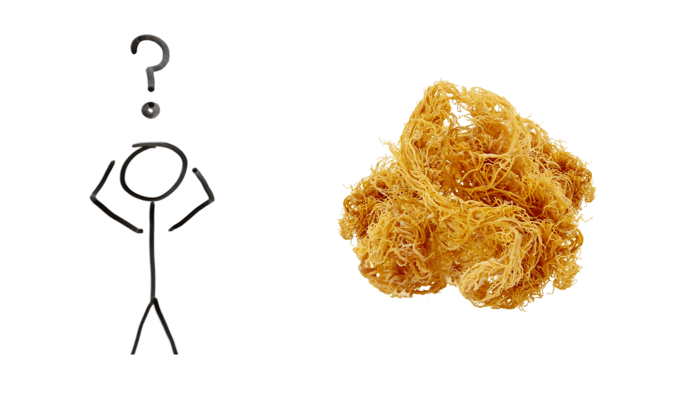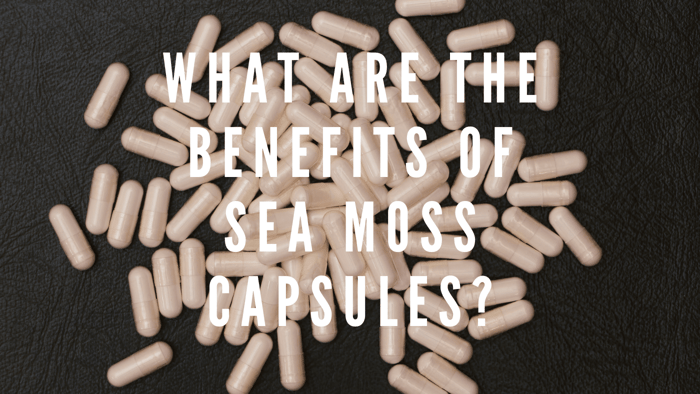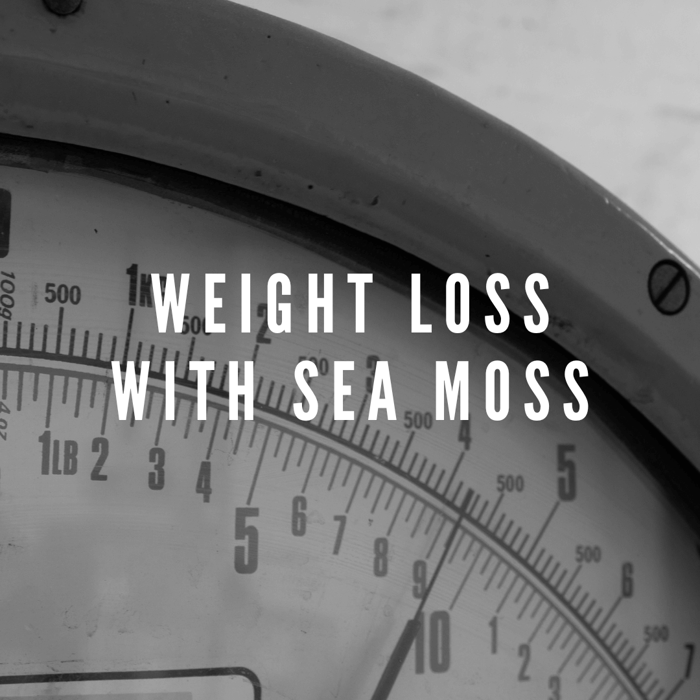What are the Health Benefits of Sea Moss
Everyone is talking about sea moss. This spiny sea vegetable is in supplements, cosmetics, and used as a thickening agent in food products. Sea moss is found along the rocky coastlines of North America, Europe, and the Caribbean and has a long history of medicinal and health benefits. Read on if you’re curious to learn about the health benefits of sea moss and how to use it in your everyday life.
What is Sea Moss?
Sea Moss is a type of seaweed that grows in tidepools and inlets along the Atlantic coasts between North America, Europe, and the Caribbean – it’s also commonly called Irish moss or red seaweed. The scientific name is Chondrus crispus, which is considered a type of algae.
This edible sea plant is similar to kelp and dulse and can grow in more colors than red. You’ll often see it in shades of green, purple, brown, and black. The most common variety is Irish sea moss, and you’ll find it growing in warmer waters.
A Brief History of Sea Moss
There’s some evidence that sea moss was used back in 600 B.C. in China for medicinal purposes, and then it became a food source around 400 B.C. in the British Isles.
It wasn’t until the mid-19th century that sea moss became a vital source of nutrition during the Great Famine in Ireland. Later on, Irish immigrants established seaweed farms in the United States. During World War II, sea moss increased in popularity as a food thickener and emulsifier when the U.S. and other countries experienced food shortages.
Today, sea moss is still used as a medicinal, health, and food product. There are a ton of health benefits gained when using sea moss in your diet, and we’ll dive into those in the next section.
Health Benefits of Sea Moss
Sea moss is packed with an array of vitamins and minerals. It’s naturally low in calories, fat, sugar, and carbohydrates. Sea moss is also a good source of iodine and antioxidants. Many people use sea moss for its health benefits.
Some of the possible health benefits of sea moss include:
Supports Immune System
There is some research that shows sea moss may support the immune system. The naturally occurring carrageenans might contain anti-tumor properties. Further research shows that sea moss offers antibacterial and antifungal properties.
Promotes Thyroid Health
Sea moss is rich in iodine, containing an average of 3.86 milligrams of iodine per kilogram of weight. Iodine is a micronutrient that’s necessary for a healthy thyroid.
Aids in Digestion
Sea moss aids in gut health due to a naturally occurring prebiotic called mucilage. Mucilage is a type of fiber that gives food helpful gut microbes which can improve digestion and overall gut health.
Supports Muscle Recovery
Some of the nutrients in sea moss can help build muscle and maintain overall muscle and bone health. This benefit of sea moss is likely linked to its protein content and anti-inflammatory properties.
Supports Heart Health
Along with antioxidants found in sea moss, there’s some evidence that these red algae can reduce LDL cholesterol and act as a blood thinner, potentially reducing the risk of heart disease.
Improves Skin Health
Sea moss is a regular ingredient in skin care products. In addition to the abundance of nutrients and antioxidants in sea moss, it also contains sulfur, which helps treat acne.
Supports Weight Loss
Research shows there might be possible anti-obesity effects in sea moss. Sea moss extracts may support weight loss through thermogenesis – which potentially raises the body’s metabolism, meaning this powerful sea algae can help you burn more calories at rest.
Sea moss’s fiber content may be another reason it aids with weight loss. Fiber helps you feel fuller longer, making it more difficult to overeat.
How to Use Sea Moss
In line with the historical uses of sea moss, it’s mostly used as a source of vitamins and minerals to improve overall health.
You’ll mainly find sea moss supplements – gels, capsules, powder, gummy, and dried sea moss. It can also be found combined with other supplements such as turmeric, blue spirulina, bladderwrack, and burdock root for the collective benefits of immunity, thyroid, digestive, and joint health.
Ways to Consume Sea Moss
As mentioned above, sea moss can be consumed in a variety of forms. Here are some of our best-selling sea moss products:
· 100% Natural Wildcrafted Organic Gold Sea Moss Capsules
· Organic Sea Moss Gel Infused with Organic Bladderwrack & Burdock Root
Click here to shop the rest of our sea moss collection.
Tips for Incorporating Sea Moss into Your Lifestyle
Diet
Sea moss doesn’t have a distinct flavor, making it easy to blend into your favorite foods and dishes. It may change the texture by thickening them, but overall, people report no real difference after adding sea moss.
The traditional way to consume sea moss in Ireland and the Caribbean is in a fortified drink made of whole sea moss, warm milk, sugar, and spices.
Skincare
While carrageenans from sea moss are often found in skincare or makeup, you can benefit from using sea moss gel to make a homemade face mask. A sea moss face mask may help soothe acne, rosacea, facial dandruff, folliculitis, and facial psoriasis.
Final Takeaways
Sea moss is a spiny marine vegetable similar to other seaweeds and algae. There’s a long history of medicinal and health usage dating back to 600 B.C. Today, sea moss is used as a food-thickening agent and health supplement.
Sea moss is packed with vitamins, minerals, and antioxidants that can positively affect overall well-being. If you’re interested in adding it to your diet, try sea moss capsules or gel, and be sure to follow the dosage recommendation on the packaging.
 is here! Shop now, pay later in 4 easy installments
is here! Shop now, pay later in 4 easy installments



